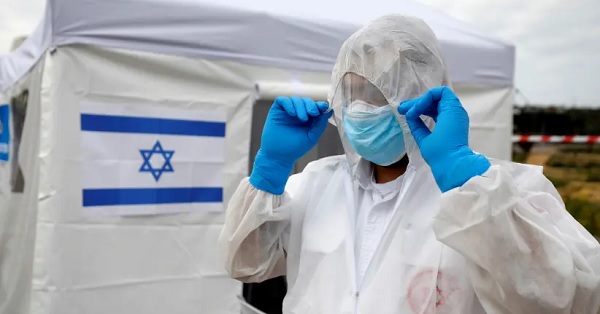Washington, DC – As we follow with trepidation the spread of Coronavirus in our own country and the sub-par response of our federal government to this global epidemic, our hearts and minds are also with our sisters and brothers in Israel. We stand with them at this somber time. We wish health to the people of Israel. We also wish health to Israel's democracy and public sphere.
We also extend our wishes for health and resilience to Israel's Palestinian neighbors, who too are facing a monumental public health challenge as they confront COVID-19.
As we do in times of national security crises, we closely follow the news from Israel. Our hearts go out to the hundreds in Israeli hospitals, to all Israelis under nation-wide lockdown, facing strict public health policies and a heavy toll on public life, on the economy, and on the well-being of Israel's citizens and their state institutions.
While we understand and support the vital need for public discipline to minimize the spread of the virus, we are deeply concerned at the ease with which Benjamin Netanyahu's transitional government and Netanyahu's political allies have taken some severe undemocratic measures.
We stand with our colleagues at Israel's Peace Now movement and other Israeli civil society organizations as they protest these undemocratic measures and continue guarding the civil rights of all Israelis.
The crisis has underscored important facts about Israeli society, some of them endearing and hope-inspiring.
Most Israelis are demonstrating admirable social responsibility, obeying social-distancing and self-quarantining as instructed by their medical authorities. Israelis are caring for each other and showing collective solidarity as they famously do in times of crisis. We congratulate them and salute them for it.
This public health crisis demonstrates that Jews and Arabs, Israelis and Palestinians alike, are equally vulnerable when it comes to a deadly virus. Israeli Jews are reminded that when seeking medical help, they are likely to be treated by Arab physicians and nurses. This crisis is helping normalize and enhance the sense of a shared humanity between Israelis and Palestinians across the Green Line and a shared sense of citizenhood among Arabs and Jews within Israel proper.
It is our hope that these notions will impact Israeli public life and enhance pro-peace sentiments on both sides of the Green Line, among Israeli and Palestinian societies alike. We also hope that leaders on both sides would muster the sense of responsibility and the vision to dedicate themselves to securing peace for their peoples.
